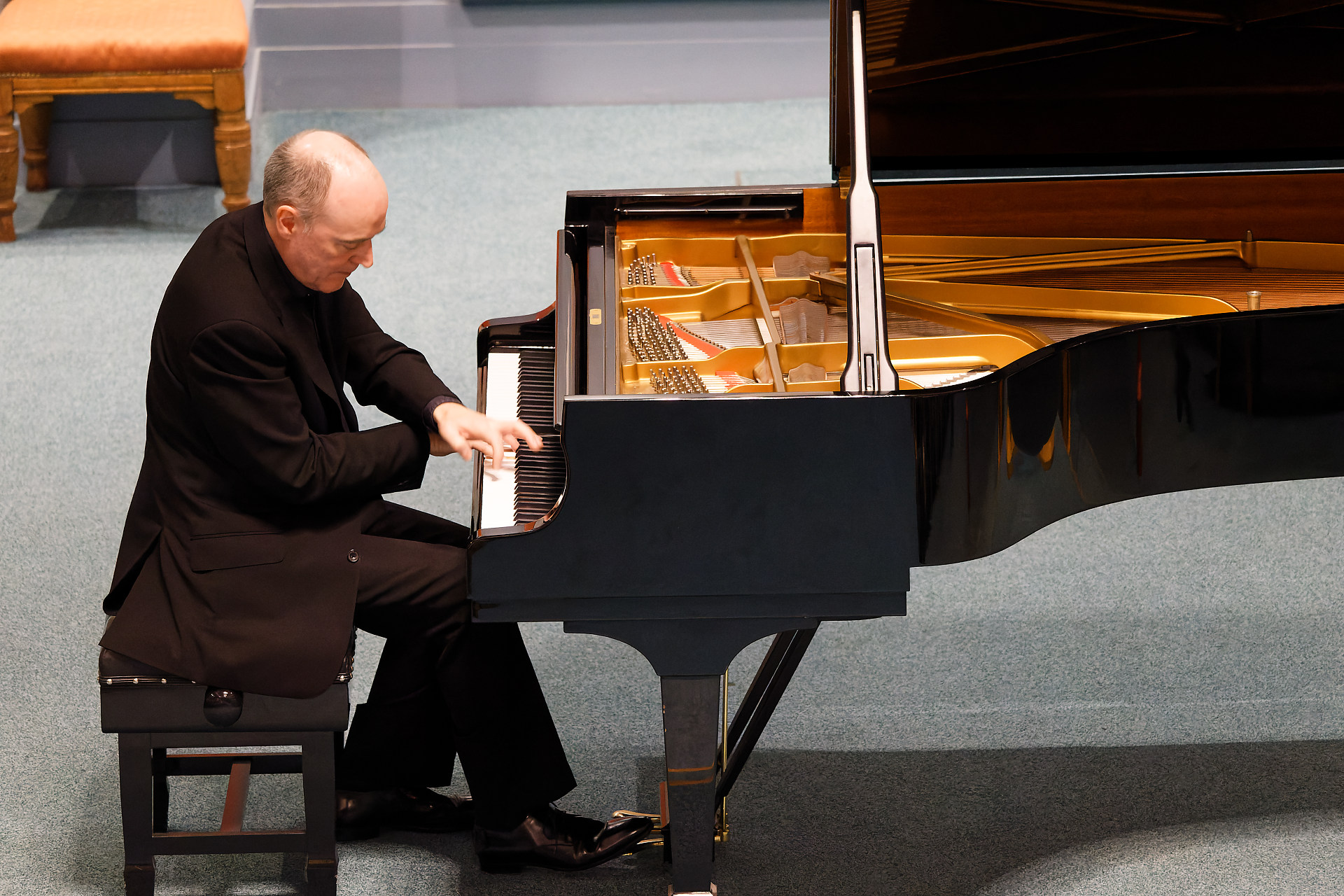Concert Review
Leon McCawley (piano) – 15th September 2025

Penrith Music Club was privileged to begin its 82nd season with an outstanding recital from one of Britain’s greatest pianists, Leon McCawley. Making his third visit to Penrith, Leon’s recital took us on a musical journey from the Spanish court of the early 18th century to the Parisian musical scene of the late 19th century.
An outstanding recital
Two sonatas by the Italian harpsichordist Domenico Scarlatti began the concert, the first a poetic and expressive minuet, the second a lively version of the Hunt (La Caccia), played with great verve and dexterity.
Beethoven’s Waldstein Sonata was written at the same time as his Eroica symphony and is filled with the suppressed energy and turbulence which are a feature of that work. One of Beethoven’s finest and most demanding sonatas, it was written when Beethoven was beginning to recognise the range and dynamics possibilities that the piano of the early 1800s had to offer. Driving rhythms and scintillating fingerwork dominated the restless opening movement and it is hard to imagine a more spacious and atmospheric start to the concluding rondo than Leon presented in what was a masterful performance of this great work.
It was good to hear, too, the original slow movement of the work, which Beethoven renamed Andante favori. The gentle Mozartian style of the opening developed into an imaginative set of variations – a lovely piece, well able to stand in its own right.
Contrasting pieces by Chopin followed. The three short and lively Ecossaises emphasised the rhythmic aspects of the Scottish dance tradition while the gentle, soothing lullaby textures of the Berceuse wove an inventive tapestry of decorative patterns in the right hand. There was much evidence of this also in the Barcarolle, a sturdier and more intense piece, inspired by the strokes of the Venetian gondoliers. Described by Leon McCawley as one of Chopin’s profoundest works, the moments of drama were expertly contrasted with the mesmerising repetition of the gondoliers’ strokes.
The final item was César Franck’s Prélude, Choral et Fugue, one of his finest works. Written in three movements to be played without a break, Franck begins with a passage of cascading arpeggios that introduce the main theme of the tightly-written Prélude. The Choral is one of Franck’s most imaginative creations, a unique piece of writing that presents the performer with countless logistic challenges, sublimely met in Leon McCawley’s sensitive playing. The Fugue presents ever-intensifying textures, leading to a tempestuous climax – one of the pinnacles of late 19th century piano writing and a thrilling climax to an excellent and hugely enjoyable concert.
A haunting Rachmaninov prelude, played as encore, offered further testament to the poetry and musicianship of Leon’s outstanding playing.
Colin Marston